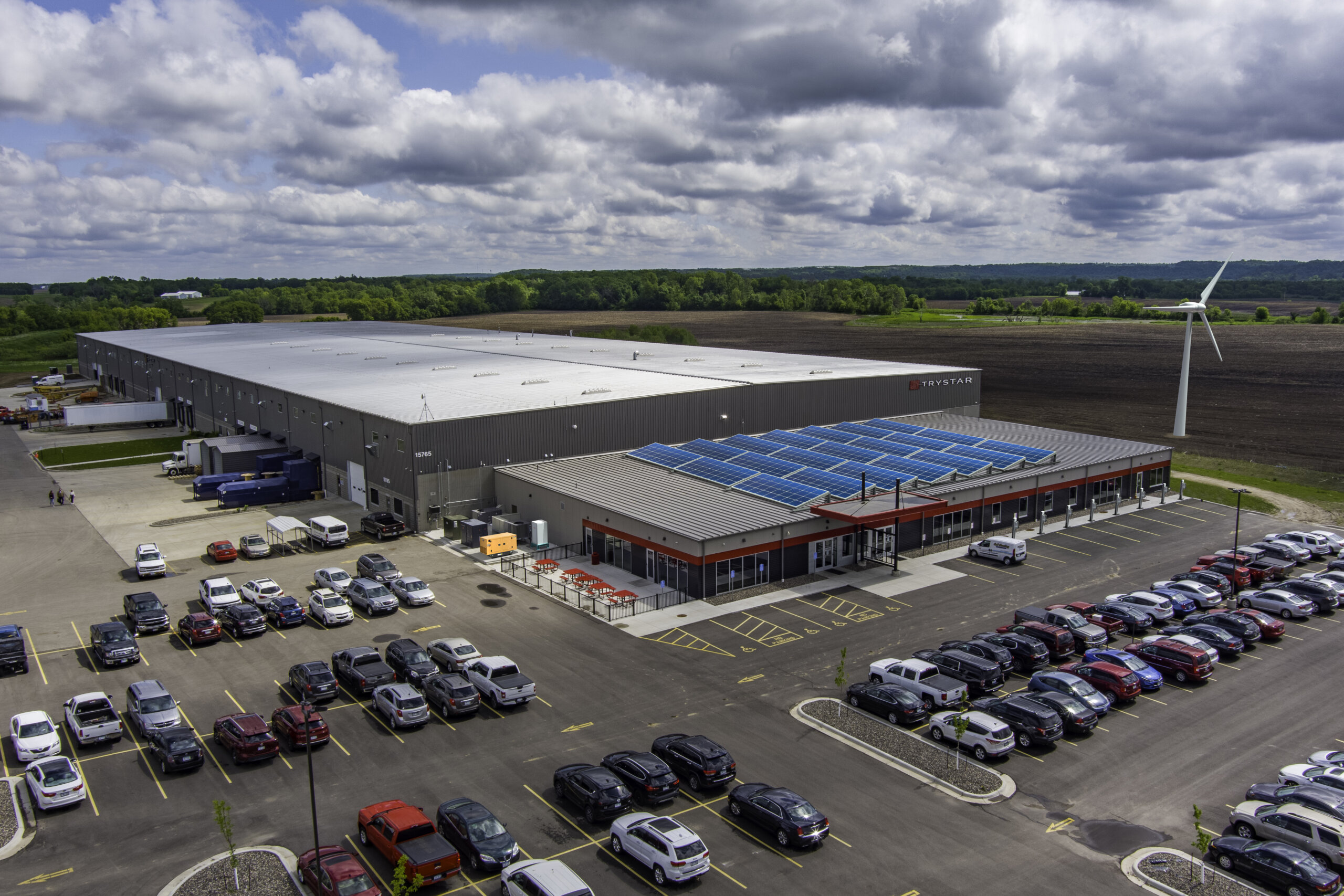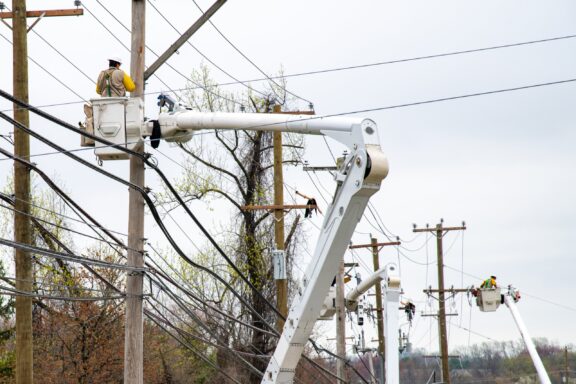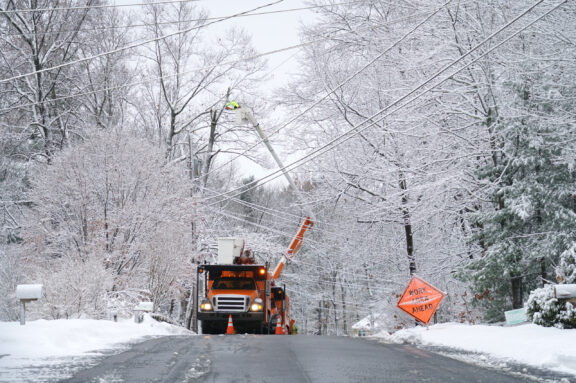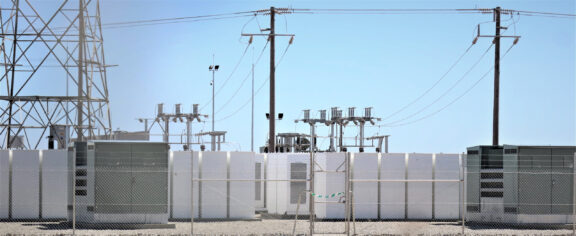Last Updated on May 1, 2023

As the world continues to grapple with the challenges of climate change, companies like Trystar are looking for ways to reduce their carbon footprint and operate sustainably. One way companies are achieving this goal is by installing microgrids. A microgrid is a self-contained power system that generates and distributes energy locally. Trystar’s microgrid consists of solar panels, wind turbines, and the latest battery energy storage technology to store excess energy for times when the sun isn’t shining, or the wind isn’t blowing.
The Faribault manufacturing site is located in a wide-open area with no natural or physical obstructions. The solar panels are located on the roof, providing excellent sun exposure throughout the year. Given the terrain’s flat nature, there is also ample wind.
The first step in building the microgrid was to thoroughly analyze the company’s energy needs. Our intent was to identify the peak hours of energy consumption and the areas of the factory that required the most energy. This approach helped us to select combinations of energy sources supporting improvement to sustainability and resiliency. We plan to learn through experience and then determine the best way to scale the system moving forward.
The initial steps included collaborating with a system integrator and our power utility provider reviewing our needs to ensure alignment with system best practices and key design consideration. The next step was to install 320 solar panels on the factory roof — completed during the winter months of 2022. The solar panels offer 172.8kW of combined potential output. The panels are connected to a central inverter, which converts the direct current (DC) produced by the solar panels into alternating current (AC) that can be used by the factory. Simultaneously, contractors installed a 120kWh battery energy storage system. This system consists of a series of lithium batteries that can store excess energy produced by the solar panels and wind turbines. When energy demand exceeds supply, the batteries can be discharged to provide additional power to the factory. Contractors also installed a 350kW natural gas standby generator to supplement charging and address peak demands as necessary. The final step will be to pour the base for the two 3.5kW wind turbines, which will be located adjacent to the main parking lot. The wind turbines will be fully installed and brought online in April.
A more visible extension of the microgrid is the eight new electric vehicle (EV) charging stations near the front entry providing charging location for our guests and employees.
The microgrid also has a smart energy management system that ensures energy is distributed efficiently and effectively. The system constantly monitors energy production and consumption and adjusts energy flow accordingly. For example, if energy demand is low, the excess energy produced by the solar panels and wind turbine will be stored in the batteries for later use. On the other hand, if energy demand is high, the smart system will prioritize energy delivery to the areas of the factory that require the most energy.
Aaron Padrnos, Sr. Manager Customer Experience and project lead, says, “The new microgrid is one of the first steps in our journey to protecting our natural resources and ensuring the future of generations to come. Yet, the microgrid also serves as a practical laboratory. It will sustain our journey and those of our customers by allowing us to create and validate new sustainable energy solutions and systems. It aligns well with our expertise and our penchant for innovation,” concluded Padrnos.
The employees at Trystar are taking pride in the new addition. It allows Trystar to reduce its carbon footprint, increase its energy independence and resilience, and save costs in the long term. The output of the Trystar microgrid is expected to avoid 185,000 kWh of conventionally-generated power. It’s the equivalent to greenhouse gas emissions from 145,057 pounds of burned coal or 304 barrels of oil.
We Are Here
To Help
Our team is here to support you and solve your power challenges. Connect with our responsive experts today to learn about our customized power solutions and products.


